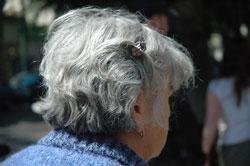Millions of adults face high blood pressure, and a significant portion of them have isolated systolic hypertension (ISH). This condition occurs when the top number (systolic pressure) is elevated (over 140 mmHg) but the bottom number (diastolic pressure) remains normal (below 90 mmHg).
If you're concerned about ISH, you're not alone. This article dives deep into effective treatment options, including natural remedies and medication approaches.
We'll also explore how to monitor your blood pressure at home and address common worries like dementia risk and headaches.
By understanding ISH and taking control of your blood pressure, you can significantly reduce your risk of serious health problems. Let's get started!
Isolated systolic high blood pressure, a condition that mostly affects older folks. If you're concerned about isolated systolic hypertension, you might be wondering:
- How can I lower isolated systolic blood pressure without medication?
- What is the best medication for isolated systolic hypertension in elderly patients?
- Can isolated systolic hypertension cause dementia?
High systolic blood pressure is a serious risk factor for stroke and heart disease, so catching it early is important. There are two main ways to tackle it: medication and natural remedies (1) .
Understanding Isolated Systolic Hypertension
In your younger years, high blood pressure is usually caused by a rise in both systolic and diastolic pressure. But as we age, the systolic pressure tends to climb, while the diastolic pressure often goes down. That's why this specific condition is called isolated systolic hypertension (2) .
Left untreated, high systolic blood pressure can damage your heart, kidneys, brain, and eyes. The good news is that you can lower it by making some simple changes to your lifestyle and diet.
Natural Ways to Lower Isolated Systolic Blood Pressure
Sticking with these changes in the early stages might mean you can avoid medication altogether. But if you find it hard to stay on track, a combination of medication and lifestyle changes might be necessary to keep your blood pressure under control.
Here are some natural remedies and lifestyle changes that can help:
- Work with your doctor: It's important to keep your doctor in the loop about any natural remedies you try so they can monitor your progress and adjust your treatment plan as needed. This will help you determine how to monitor blood pressure at home for isolated systolic hypertension.
- Monitor your blood pressure at home: Invest in a home blood pressure monitor so you can track your progress regularly.
- Quit smoking: This includes both active smoking and secondhand smoke. Smoking also raises your risk of lung disease and cancer, so quitting is a win-win.
- Reduce salt intake: Sodium makes your body retain fluids, which can raise your blood pressure. Aim to cut back on processed foods, restaurant meals, and table salt.
- Focus on potassium: Potassium helps balance out the effects of sodium in your body. Fruits and vegetables like bananas, oranges, and leafy greens are all high in potassium.
- Manage your weight: If you're overweight, losing even a small amount of weight can significantly improve your blood pressure.
- Eat a balanced diet: Aim for a diet rich in fruits, vegetables, whole grains, and lean protein. The DASH diet has been shown to be effective in lowering blood pressure (3) . This can be considered a healthy diet plan for isolated systolic hypertension.

- Limit caffeine and sugary drinks: Opt for low-fat dairy products or fruit juices instead.
- Exercise regularly: Aim for at least 30 minutes of moderate-intensity exercise most days of the week. Brisk walking is a great option.
Long-Term Effects of Untreated Isolated Systolic Hypertension
The key is to get your blood pressure in the healthy range, no matter if you achieve it naturally or with medication. If you don't, you could develop problems like heart disease, memory loss, blurred vision, and even kidney failure. High blood pressure can also lead to a condition called congestive heart failure, which can be life-threatening.
Monitoring Your Blood Pressure at Home
Your doctor will likely recommend monitoring your blood pressure at home. This allows you to track your progress and identify any fluctuations.
Here's a reminder on "how to monitor blood pressure at home for isolated systolic hypertension":
- Invest in a reliable home blood pressure monitor.
- Follow the manufacturer's instructions for proper use.
- Take your blood pressure readings at consistent times throughout the day, ideally in a calm and quiet environment.
- Record your readings and share them with your doctor during appointments.
Addressing Specific Concerns
You might have lingering questions about ISH. Here's a follow-up on some topics from part 1:
- Can isolated systolic hypertension cause dementia? While research suggests a possible link, more studies are needed to confirm a cause-and-effect relationship. Maintaining healthy blood pressure is crucial for overall brain health.
- Does isolated systolic hypertension cause headaches? Headaches are not a typical symptom of ISH, but uncontrolled high blood pressure in general can sometimes cause headaches. Discuss any persistent headaches with your doctor.
- Isolated systolic hypertension and sleep apnea: Sleep apnea, a condition where your breathing repeatedly stops and starts during sleep, can also contribute to high blood pressure. If you suspect you have sleep apnea, talk to your doctor about getting tested and treated.
Conclusion
Isolated systolic hypertension requires a two-pronged approach: lifestyle modifications and potentially, medication guided by your doctor. By working together, you can effectively manage your blood pressure and reduce your risk of serious health complications.
Remember, consistency is key! Regular monitoring, adherence to your treatment plan, and open communication with your doctor are all essential for maintaining good blood pressure control.

